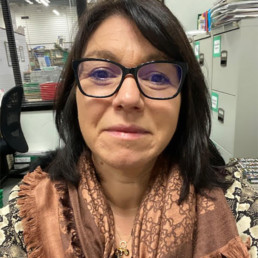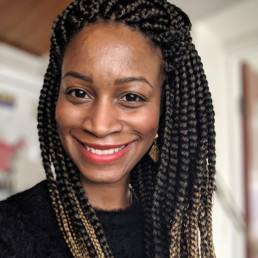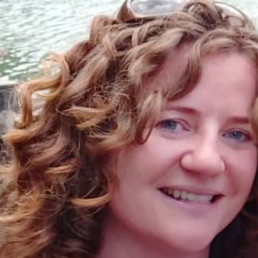Anti-racism in the Early Years

Written by Rachna Joshi
Rachna is a teacher and consultant. She works with under-threes, Nursery and Reception children, and holds an MA in Early Childhood Studies. Rachna writes and speaks at events sharing experience and knowledge, empowering practitioners and provoking questions to disrupt routine practice. She supports schools by guiding educators to implement inspiring practice that reflects their classes. She works as a freelance consultant and with the Froebel Trust as a travelling tutor.
Originally published for Early Education in 2020:
https://early-education.org.uk/guest-blog-from-rachna-joshi-anti-racism-in-the-early-years/
Introduction
Race and racism in society is as important as ever; I am writing not only as a British South Asian who has experienced racism, but as an ally against white supremacy and anti-Black sentiment that perpetuates our consciousness.
Structural racism is insidious, and we need to look at ourselves and think about the messages we perpetuate. The racism that comes through our thinking, language and gestures shows the undercurrent of white supremacy in the ways that we perceive the world.
Context
This was written to respond to the systemic racism in education as a profession.
It is great that some people are more aware and doing what they can to ‘be anti-racist’, but this needs to continue – it’s a movement, not a moment.
There are many problems with systemic racism in Early Childhood settings, and I hope to provide some suggestions and links for your own reflective practice –I can’t tell you what to do, it is your journey and up to you to educate yourself, but I hope this helps on that journey.
Reading articles on racism may be uncomfortable, as it is an upheaval of what we know, and what is normal, and this is because ‘normal’ is inherently racist. I want to ask questions that may not be answered here, because this is a point of introspection and individual responsibility when it comes to looking after our children and being ‘players’ in a wider world. You need to ask yourself questions, consider who you are and what your call to action is for change.
Classrooms
Often as Educators we are seen as though we are already doing “the good work”, yet this topic brings about a space for deep introspection. When you set up and manage your classrooms ensure representation is embedded and not an ‘add on’. White, cisgender heteronormativity cannot be the default.
Classroom changes need to look beyond book corners and skin colour paints. Colleagues shared with me the lack of thought behind some small world people resources as the shop only provided white people. The representative resources already exist, unfortunately it is not mainstream, but this needs to change. Audit your dressing up clothes, food items and hair related products for your role play areas – ask parents to donate items. Tune into and value the voices in the classroom that come from wider communities. Consider the characters and stories that are shared – what message is being shared around skin colour, femininity and hair when using Frozen characters for example?
Development Matters and the EYFS People and Communities ELG explicitly reference “similarities and differences between themselves and others, and among families, communities and traditions” if we decipher the curriculum through this lens we may see that we should already be exposing children to a variety of cultures to provide opportunity for discussion with children. Presumably these statements are based on the research that expressions of racial prejudice peak by age 4 or 5 (Aboud, 2008). However, often we only hear about wider cultures and practices through celebrations: Eid, Diwali, Hannukah, Chinese New Year, this ‘add-on’ doesn’t provide the deeper discussion of cultures and values that encompass the everyday for the children that celebrate these festivals. What are you doing to ensure that all communities are represented and respected? And how do you incorporate these communities into your usual practice and provision? How do you ensure that your practice provides a wider perspective?
Curricula
There needs to be deeper consideration of how curricula can be decolonised, ensuring key figures are discussed and explored. It is not enough to teach the history of enslavement and civil rights (which are important stories that represent the struggle so many marginalised communities have experienced) it is about countering the narrative that to be non-white is not normal.
“Cultural capital” needs to include key public figures, artists and musicians, but also everyday heroes that children may see in the community. We want our children to have a foundation of curiosity, knowledge, and respect for differences, so that they don’t absorb the idea that the lives of black, and other people of colour are only about struggle.
Acknowledging cultural capital means noticing, celebrating, and valuing difference. Most schools celebrate white men- Samuel Pepys when learning about the Great Fire of London, Pablo Picasso, Charles Dickens, William Shakespeare, Buzz Aldrin and Neil Armstrong in the recent Moon Landings celebrations. Where are the Black people? Are we giving an accurate representation of history if the only figures we see are white men? What about Mary Seacole, Steve McQueen, Katharine Johnson, Ai WeiWei, Anish Kapoor?
To question my own biases when planning curriculum drivers, I have begun to ensure a set of questions are on the top of every curriculum document:
- Have you addressed sustainability?
- Have you shown a variety of families/gender roles?
- Have you included characters and perspective from a variety of backgrounds, especially those who are under-represented?
- Have you included stories that show a range of emotions for discussion?
- Is there an opportunity for cultural capital?
Cultural practices are often forgotten and seen as an ‘add on’. An example might be a discussion of eating with hands vs. eating with knives and forks – some things that might be seen as a norm in one culture is the opposite in another. Have you made space for this in your classroom and your own understanding of your children and their cultures?
Reflection and Response
Are you prepared to discuss race, or answer a question on race when it occurs in the classroom and ensure you have done best for that child?
Ensure you are prepared to talk about skin colour, culture, religion so you’re not scrambling for words when a child asks a direct question about these things. Have you spoken to families to ask them how they have approached discussing skin colour? How are you ensuring families feel confident to discuss race?
Ultimately as practitioners we are familiar with constant reflection, but it takes more to look closely at the implicit bias that we perpetuate. Don’t be afraid to talk about it, but make sure you research and read up – educate yourself. Make lifestyle changes that involve taking on these wider perspectives beyond your early education practice.
Leadership
What do your leadership teams look like? In predominantly white areas there may be little diversity, but is there diversity in the content that is taught to children? Are staff aware of the wider world and implications of their bias? Are staff considering the possibility of providing only a white view of the world to children? Is there a consideration from leadership teams to reflect on systemic racism in schools and settings, and how could this be tackled? Could your schools consider mandatory staff training on Black history, global non-white-led history and open discussion of unlearning of implicit bias (by consultants who specialise in this area)?
Are you questioning decisions that perpetuate anti-blackness and racism in your school? If you are white, do you stand up for your underrepresented colleagues, who may not have the privilege to stand up for themselves?
Institutions
When Early Childhood Education institutions are questioned, the inherent tokenistic nature of BAME representation is revealed. When representation is conceived through a lens of empty diversity that leads to tokenistic representation in chairs and boards, then what message does this send, and what actual intervention does this make in challenging implicit bias and institutional racism?
The government response to including Black History and minority ethnic representation into the curriculum was that it is up to teachers to do this (see petition response). Where in Initial Teacher Training is there a discussion of systemic racism and bias and how practitioners can support BAME families appropriately? In Early Childhood academia, a privileged position to be in, majority of academics are white and therefore research continues to remain whitewashed.
A large part of the wider work to tackle racism is to look at our institutions and policies. Our institutions are built upon racist ideologies and anti-blackness. There are petitions to change how our curriculum looks at a wider policy level but these are often rejected. There needs to be a whole government strategy, that needs to be continually lobbied by all Early Education influencers and those in positions of power who are allies in this movement.
Further Reading
Blogs and Articles
Laura Henry-Allain’s article in Nursery World
Kate Moxley’s podcast discusses blackness in Early Years with Liz Pemberton and “The Early Years Orchestra” episode with Jamal Carly
An Abolitionist Coalition Grassroots Movement in Education
US based article writing about racism in preschool
Nursery practitioner David Cahn writes about allyship and racism in Early Years
Decolonising curriculums
Practitioner’s roles in decolonising curriculums
Reflection on anti-racism in schools
Making changes to the curriculum
Parliament response to Decolonisation of curriculum petition
Talking race with children and families
How to respond to children when they ask race related questions
Parents guide to Black Lives Matter
Social Media Accounts to Follow
Black Nursery Manager Instagram @theblacknurserymanager
The Conscious Kid Instagram @theconsciouskid
Jamal Carly Instagram @Jamal.Carly
JossyCare Instagram @JossyCare
Laura Henry-Allain Twitter @IamLauraHenry
Resources
National Literacy Trust Book list
Spud and Yam Irish and Jamaican musicians
Black History Resources for UK schools
References
Aboud, F. E. (2008). A social-cognitive developmental theory of prejudice. In S. M. Quintana & C.
McKown (Eds.), Handbook of race, racism, and the developing child (p. 55–71). John Wiley & Sons, Inc.
Empowering Through Education: The Rastafarian Scheme of Work

Written by Johnoi Josephs
Johnoi Josephs is the Associate Assistant Principal at a school in West London where he specialises in Behaviour, Attendance and Pastoral Programmes. He also teaches RE, Citizenship and Sociology. As well as teaching he is the co-founder of Black Men Teach which aims to build a space where Black Males and Boys can thrive in education. For him, BMT is important because representation matters in all sense and so we need to illustrate presence in every industry/profession. Johnoi aims to live a life of servitude where he is able to make as much impact as possible when it comes to education.
In the pursuit of a more inclusive and culturally diverse education system, it’s essential to recognise the power of representation. As a black male teacher from Jamaica, my journey in creating the Rastafarian Scheme of Work was fuelled by a desire to pay homage to my roots and provide students with a curriculum that embraces their own cultural identities. This endeavour was not only a personal passion, but a fundamental step towards decolonising the curriculum.
The Inspiration
The spark for this project ignited during a conversation with a friend. We delved into the complexities of decolonising the curriculum, particularly within Religious Studies. It was clear that this endeavour required a nuanced approach. Armed with this newfound determination, I set out to create a curriculum that would bridge the gap between mainstream education and the rich tapestry of Rastafarianism.
A Journey of Dedication
Crafting the Rastafarian Scheme of Work was no small feat. Balancing it with my other responsibilities was a challenge, but I knew this endeavour was a crucial step towards a more inclusive educational experience. I dedicated days of my summer holidays to ensure that this curriculum would be comprehensive, engaging, and transformative for students.
Empowering Through Knowledge
The Rastafarian Scheme of Work is a meticulously designed curriculum that empowers KS3 students with deep understanding of Rastafarianism. This comprehensive course comprises:
- Seven Detailed Lessons: Each lesson is designed to provide students with a holistic view of Rastafarianism, encompassing its origins, beliefs, practices, and cultural significance.
- Medium Term Plan (MTP) Breakdown: This plan outlines the progression of the curriculum, ensuring a seamless and immersive learning experience.
- Knowledge Organiser: A valuable resource that condenses essential information, allowing students to review and reinforce their understanding.
- Assessment: A tool to evaluate students’ grasp of the material, providing valuable feedback for both educators and learners.
- Extra Resources: Supplementary materials enrich the learning journey, offering a well-rounded exploration of Rastafarianism.
The Power of Representation
Incorporating diverse perspectives and cultural awareness in education is not merely a matter of political correctness, but a fundamental necessity for the holistic development of students. Research consistently demonstrates the profound impact of representation on learning outcomes, social integration, and well-being.
- Enhancing Learning Outcomes: Inclusive curricula positively affect student motivation and achievement levels, leading to higher academic performance.
- Fostering Inclusivity and Belonging: Representation in education helps foster a sense of inclusivity and belonging, leading to increased participation, improved social integration, and a stronger sense of community within the school.
- Cultivating Empathy and Global Awareness: Exposure to diverse perspectives cultivates empathy and a broader understanding of the world, a critical skill in an increasingly interconnected and globalised society.
- Mitigating Stereotypes and Biases: Inclusive education challenges harmful stereotypes and biases, fostering a more accurate and nuanced understanding of different cultures and identities.
Transforming Schools: A Call to Action
Given the wealth of research supporting the importance of representation and cultural awareness in education, educators must take proactive steps towards decolonising the curriculum. The Rastafarian Scheme of Work is a prime example of how a curriculum rooted in cultural authenticity can drive positive learning outcomes and empower students to embrace their identities.
By embracing diverse perspectives, we not only enrich the educational experience, but also prepare students to navigate an increasingly diverse and interconnected world. Through inclusive education, we can truly empower the next generation to become compassionate, culturally aware global citizens.
Incorporating the Rastafarian Scheme of Work into your curriculum is a significant step towards creating an environment where every student from certain backgrounds can feel valued, seen, and heard. Together, we can work towards a more inclusive and equitable education system that prepares students for a future marked by understanding, empathy, and respect.
No time to say “we don’t have time” when it comes to diversity in literature

Written by Jessica Tacon
Jessica Tacon is second in charge of the English Department at City of London Academy Highgate Hill and is a member of NATE’s (National Association for the Teaching of English) ‘Reviewing Literature’ working group. She created The Right Writing campaign which aims to improve racial diversity in English Education.
Knee-jerk: “a quick reaction that does not allow you time to consider something carefully”
When a topic or issue becomes present in the public eye (often despite having always been of paramount importance, as is the case with diversity and inclusion in education) or it begins to feel more urgent, there can be pressure to actively resist or even just to react.
The pressure that I am referring to here comes from the expectation that education should be diverse and inclusive, something which has failed to be considered over decades. The pressure point is the realisation of this failing; the need to respond becomes pressurising as organisations need to be seen as doing the ‘right’ thing.
But the bottom line is that schools absolutely must not be exhibiting knee-jerk or quick-fix solutions to improving the diversity and inclusion of education. We need to make it a priority to find that beautiful balance between speed and solutions; remember, the first organisation to make changes in the way of diversity and inclusion is not necessarily the organisation doing the work most properly.
Making time, not taking time
Showing support for a cause without taking action at first can be a good thing. Note I said “can”. Far too many organisations, schools included, have used the excuse of wanting to ‘take their time’ as a guise for the fact that, actually, diversity and inclusion isn’t their priority. To this aim, time must be carved out at a systemic level to plan, implement and maintain changes in the education sector.
What can this look like? In reality there isn’t a one size fits all approach, it can look like many things. For specific questions to help schools to approach changes or to reflect on whether their current approach(es) are purposeful in the ways that truly matter, please see the full version of this article on the Pearson website.
With so many pressures on our time and headspace, tokenism, virtue-signalling and ‘quick’ fixes (which usually fix very little) can be tempting. But when we look at the absolutely unarguable benefits of a truly diverse and inclusive education, we cannot afford to not consider every single aspect of the above questions in everything that we do.
Evaluating English
Let’s look at the subject of English as an example. English A Level uptake has been declining for some time; research is still being done as to why but initial findings show that students do not feel that English is relevant for them or offers them career pathways. In 2018/19, only 19% of students who took English Literature at A Level were Black, Asian or of a Minority Ethnicity (Source: GOV.uk available on request).
Where does this lack of students studying English at A Level come from? In 2018 The Runnymede Trust found that nearly 92% of teachers in state funded schools were White, in 2020 Publishing Perspectives found that only 13% of people working in the publishing industry were Black, Asian or of a Minority Ethnicity and it is not unusual for a pupil to leave school having never studied a book by a Black author, as shown in research carried out by Penguin Random House. It does not take too much evaluation to see the vicious cycle that has been created: everywhere that young people turn they do not see themselves. This forms one example of why all the aforementioned changes need to happen, if it even needed to be pointed out in the first place.
A real reflection
As the writer Junot Díaz puts it:
“You know, vampires have no reflections in a mirror? There’s this idea that monsters don’t have reflections in a mirror…It’s that if you want to make a human being into a monster, deny them, at the cultural level, any reflection of themselves. And growing up, I felt like a monster in some ways. I didn’t see myself reflected at all.”
What Díaz describes here about representation is one facet of these changes; schools must look beyond “representation, and the pitfalls of tokenism, to thinking about how schools can be proactive in tackling racism” as The Runnymede Trust puts it.
Ultimately, what we are offering in educational settings is not truly an education until every aspect of education has changed to represent, include and celebrate every child. We are already behind, now we must come together and push forward diversity. There is no other option.
“But is it age-appropriate?”

Written by Gerlinde Achenbach
Gerlinde Achenbach is a senior education consultant and former primary headteacher. Her career spans more than 35 years, with over 30 years teaching in schools. Since 2021 she has been supporting schools across the UK with Equity, Diversity & Inclusion, specifically LGBTQ+ inclusion. Her expertise is in leadership and changing school culture.
It’s now 20 years since Section 28 was repealed in England yet in primary schools we’re still, it seems, reluctant to talk with young people about being lesbian, gay, bisexual, trans or more. Some of us can’t get past the LGBT+ acronym, never actually defining what each letter stands for.
“Can I say ‘gay’ in Year 2?” one lead teacher for EDI was asked recently. We were talking during a recent 1:1 coaching session on developing best LGBT+ inclusive practice across the school. Deeply frustrated, the teacher bemoaned her experience with colleagues: “Some of them won’t include it beyond PSHE. Others never get round to it, telling me they’ve run out of time.”
Many primary class teachers are fearful of parental backlash in front of groups of other parents and their children. Some know that their senior leader colleagues are just as wary. And it’s true, this is one area where some parents and carers often feel emboldened to speak their mind. It’s embarrassing to be on the receiving end and, if you’re not confident about why we’re including LGBT+ themes in our learning and our environments, it’s easier to put your head in the sand. But let’s not forget that it’s statistically very likely that every family will have someone – parent, uncle or aunt, sibling, cousin or grandparent – who is lesbian, gay, bisexual, trans, queer or more.
“We want to make sure it’s age appropriate…”, say primary schools.
The DfE’s compulsory guidance on RSE came into force in September 2020, stating, ‘Primary schools are enabled and encouraged to cover LGBT content if they consider it appropriate to do so.’
With an independent review currently in progress to ‘advise the Secretary of State for Education on what is appropriate to teach in relationships and sex education and health education, and at what age’ , the stakes for ‘age-appropriate’ are high.
Of course, it’s important that the curriculum is appropriate for the age and experience of the children in each year group. But let’s not forget that when we talk about equity, diversity and inclusion, we’re moving beyond curriculum into the realm of whole school culture. The reservations we may have about being LGBT+ inclusive in younger year groups do not sit well with a culture of inclusivity and belonging. As a Primary Headteacher, I know that the majority of primary schools now include at least a handful of same-sex parented families, and often at least one child questioning their gender. That’s not forgetting the afore-mentioned LGBT+ relatives and friends. Surely we owe it to all the children living in LGBT+ families to see their own lived experience validated by our practice and provision? At the very least, our culture and curriculum should reflect and represent our LGBT+ children, both those who know it already and those who will know it soon enough. It’s our moral duty.
So, what could be more appropriate, for EYFS up, than talking about how families are made up differently, and that they have love for each other in common? Quite simply it is appropriate to have a curriculum where we share stories with young children about families and individuals who may dress, speak, identify or love differently from those they know, whilst talking about kindness and respect. We must also surely help children try to understand the injustice of being discriminated against, or harmed, simply for loving someone of the same gender.
We know that learning about sexual orientations other than heterosexuality does not ‘make you gay’, any more than learning that some people question the gender assigned them at birth ‘makes you trans’. Young people are discerning and knowledge is power. If any of the above applies to them, they will learn about it in a safe, accepting space. If it doesn’t apply, they have learned respect and compassion for others. Is it then morally acceptable to put our heads in the sand when we know that through educating our children, we educate our families and our communities?
Put simply, LGBT+ inclusion is about showing respect and compassion for all LGBT+ people as equal members of our diverse school and wider communities. It’s about being included in every aspect of school life and knowing you belong.
It’s always appropriate, at every age.
10 Engaging Diversity Books for Children: Promoting Inclusion and Understanding

Written by Rachelle Carter
Rachelle Carter is co-director of Madeleine Lindley Ltd, a key children’s book supplier based in Chadderton, Oldham. Its staff are experienced and well-equipped to help primary schools rejuvenate and refresh their class libraries with the latest and most engaging books. The business has played a vital role in supplying many of the UK's primary school libraries for over 35 years.
Reading across a range of cultures and experiences not only broadens children’s worldviews but also nurtures an appreciation of the wider world. Being exposed to a range of books that cover different representations allows children to feel connected and included, and allowing a child to explore various narratives through books through a multitude of narratives is a cornerstone in exposing a child to inclusion and understanding.
Here, children’s literacy specialist Madeleine Lindley Ltd explores ten notable books that celebrate diversity, promote inclusivity, and stimulate the imagination. For primary school teachers, this list can serve as a great starting point from which to build a classroom library or wider school library with books that promote inclusion. It is important to remember that the representation of diversity will differ from classroom to classroom. Use this list to explore the types of books you can consider for your classroom, and explore the broad range of diversity and inclusion books yourself to find the perfect books for your children.
1. Uncle Bobby’s Wedding by Sarah S. Brannen
Uncle Bobby’s Wedding takes a delicate approach to introduce the concept of same-sex marriages. As the story unfolds, young readers journey alongside Chloe, the protagonist who initially fears she will lose her beloved Uncle Bobby when he announces his wedding. The story’s gentle narrative helps children understand that love transcends all boundaries and that families come in all shapes and sizes. Moreover, it instils the idea that a change does not equate to loss, a valuable lesson for children.
2. The Best Me! by Marvyn Harrison
In The Best Me!, Marvyn Harrison promotes the importance of self-esteem and individuality, focusing on the central character’s journey, Nia. Nia learns to embrace her unique identity and sees the beauty in everyone’s differences, breaking away from societal expectations. The book delivers the fundamental message that everyone should feel empowered to be their true selves.
3. The Proudest Blue by Ibtihaj Muhammad and S.K. Ali
The story revolves around Asiya’s first day of school, with her wearing a bright blue hijab. Her younger sister, Faizah, sees Asiya’s hijab as a symbol of pride and strength. The Proudest Blue introduces children to the concept of faith in oneself and the richness of cultural diversity, helping them recognise and respect religious practices that might differ from their own.
4. Grandad’s Camper by Harry Woodgate
Grandad’s Camper presents a loving relationship between Grandad and Gramps. Following Gramps’s passing, Grandad ceases his adventuring until his granddaughter reignites his passion. The book addresses LGBTQ+ relationships and loss sensitively, fostering understanding that love is universal, extending beyond conventional family setups.
5. Speak Up! by Nathan Bryon
Speak Up! is a compelling narrative about using one’s voice to champion what’s right. The protagonist, Rocket, inspires children with her bravery, as she stands up for her community’s park. This story encourages children to be courageous, fostering a sense of responsibility, and motivating them to stand up for what they believe in.
6. Just Like Me by Vanessa Brantley-Newton
Just Like Me is a collection of poetic narratives, celebrating diversity, self-love, and acceptance. Vanessa Brantley-Newton’s character-driven poems encourage children to explore and celebrate their identities, recognising that everyone’s story is unique and equally important.
7. The Bubble Boy by Stewart Foster
The Bubble Boy introduces the character of Joe, a boy with severe combined immunodeficiency who lives in a sterile environment. This narrative fosters empathy, giving children a glimpse into the lives of those living with health conditions, ultimately encouraging them to be understanding and respectful.
8. Jamie: A Joyful Story of Friendship, Bravery and Acceptance by L. D. Lapinski
Jamie paints a picture of an inclusive world where each individual is unique and cherished. The story explores themes of friendship, bravery, and acceptance, helping children appreciate the diverse characteristics that make us all human.
9. Fight Back by A. M. Dassu
Fight Back explores the resilience of a young refugee, teaching children about the realities of displacement and courage. This book encourages understanding of global issues and empathy towards individuals who’ve experienced adversities beyond their control.
10. No Ballet Shoes In Syria by Catherine Bruton
This book captures the experiences of Aya, a refugee girl in Syria who finds solace in the world of ballet. No Ballet Shoes In Syria allows children to empathise with the struggles of refugees and appreciate the power of passion, dedication, and the arts.
Find diversity books for your library
Cultivating an environment that values diversity is an important part of fostering an enriching, inspiring, and inclusive environment for your children. To help you in doing this, Madeleine Lindley Ltd helps curate an inclusive, engaging, and ever-evolving reading environment for your primary school. By filling your library with books that celebrate differences, you are not just introducing children to a multitude of perspectives, but also instilling a lifelong love for reading.
Exciting changes in the English Curriculum

Written by Samantha Wharton
Samantha is a seasoned educator from East London, with ancestral roots tracing back to the Caribbean nations of Antigua and Guyana. She brings a wealth of academic achievements, including a degree in Communications and Media from Brunel University, a PGCE in English and Drama from the Institute of Education at University College London, and an MA in Black British Literature from Goldsmiths University.
English teacher Samantha Wharton takes us through some of the exciting changes to the English curriculum – featuring stories of the Windrush generation.
As well as it being the monumental milestone of 75 years since the Windrush ship docked at Tilbury forever changing the fabric of the nation; this year 2023, also marks significant changes in the English curriculum. For the first time, two playtexts by Black British female writers will feature on the English specification across three exam boards! AQA, Eduqas and OCR have added Leave Taking by Winsome Pinnock and The Princess and the Hustler by Chinonyerem Odimba to their collection of texts for examination in 2025 (available to teach THIS September).
The play Leave Taking is considerably significant in its relations to the Windrush as the writer Winsome Pinnock foreshadows some of the issues that later arise in the 2018 Scandal. The play written 1997 and produced at the National Theatre (marking the first black female playwright to have a production in this space) tells the story of Enid – a woman in her forties that arrived in England during the Windrush era. She raises her two daughter’s Viv and Del in this new British landscape where she navigates some of the challenges of being Black in Britain. I believe this is a wonderful play that documents an important story that needs to be heard. It is part of our shared British recent history. It shares the universal themes of migration, parent child relationships and belonging. It’s a text that is accessible to all GCSE students and a play that young people will relate to – especially the parent/child clashes and expectations that parents have for their children.
This is a huge change in the curriculum and one that I feel is much needed. As a teacher of 18 years I have seen many changes in the curriculum that to some extent have narrowed the world scope for young people, especially those that do not read independently. There was very little to no diversity reflected in the texts available at GCSE in particular so this is incredible. I am excited to be teaching this play at my school: St Angela’s Ursuline in London, where we will be part of a pioneering group to teach this text in the first year of official study!
I believe that diversity in literature and a range of texts help to foster a love of reading. Generally, readers like to make observations about others and escape to new places through literature. Novels are our gateway to other cultures and ways of life that we may not be able to physically be a part of. It is important that students have this exposure to different texts within the classroom and not just as part of reading for pleasure.
I was also fortunate to be commissioned by Nick Hern Books alongside Lynette Carr Armstrong to create a study guide for Leave Taking. Combined we have over 50 years of teaching experience and have created a resource that will support the learning of this text for students and will also provide a source for teacher’s planning to teach this text in the future.
I encourage teachers, parents and young people alike to engage with these stories! They are an important part of our history and need to be heard!
For access to Leave Taking (play and guide) as well as AQA conversations for teachers see the following websites:
Text: https://www.nickhernbooks.co.uk/leave-taking
Study guide:https://www.nickhernbooks.co.uk/leave-taking-gcse-student-guide
AQA: https://www.aqa.org.uk/professional-development/search?f.Themes%7CV=Spark
Pupil Voice and Agency – DEI Pupil Leaders

Written by Kiran Satti
Senior Assistant Principal; Primary Trust - Literacy Lead Practitioner; #WomenEd Regional Leader; Contributor to Diverse Educators: A Manifesto.
Diversity, Equity and Inclusion – what does it mean to the children we serve in our school communities?
One of our DEI Pupil Leaders shares what it means to her…
I am very proud of being a DEI leader because it is an important job. It is important because we are helping the children learn about the Protected Characteristics, we are reading important stories to the children to help them become aware and most importantly, help the children understand what it might be like for someone living with some of these Characteristics, such as disability.
The stories she is referring to are our DEI Story Escapes. At the beginning of this year, the newly formed DEI Pupil Leaders (another branch to our Pupil Leadership Team) sat and discussed which books they believed were best representative of each of the Protected Characteristics. Most powerfully, this group of Pupil Leaders were representative of the increasingly diverse learning community they are part of. The DEI Pupil Team have 6 members who are very passionate about equal and human rights – this was evident when I was sharing the Pupil Training, where we learnt about the Protected Characteristics and the importance of understanding intersectionality.
In alignment with the Pupil Training, I also delivered staff training to ensure the teachers and educators shared the same understanding of DEI as the Pupil Leaders. It was important everyone in our school community had a shared language and understanding to draw from as the children started to read the DEI Story escapes to the classes.
Here are some of the Pupil Leader’s favourite DEI Story Escapes:
My favourite DEI Story Escape we have shared so far is There is a Tiger in the garden! There is a tiger in my garden is my favourite book because it has amazing illustrations and lots of emotive language. “Wow!” says Nora is my favourite part of this book because of how beautiful the dragonflies were and how they drew them! This book is about the protected characteristic AGE – it doesn’t matter what your age is, we can all still use our imagination, young or old.
My favourite DEI Story Escape is Pink is for Boys. My favourite page is where blue is for girls and pink is for boys. Ut is my favourite book because it tells us that colours are for everyone – they are not gendered. There are no colours for particular people – all colours are meant for everyone.
Pink is for Boys is my favourite book because it shows us thar all of the colours are for everyone. My favourite pages are the ones with the unform and where it says pink is for girls and boys.
Sulwe is my favourite DEI Story Escape. It is my favourite book because at first she thought she wasn’t pretty because she wasn’t the same skin colour as her sister but then she realised people needed the darkness to rest – my favourite page is where they told her, “When you are the darkest is when you are most beautiful.”
The DEI Story escapes have been an incredible success, mostly because the Pupil Leaders have read and led the discussions. Pupil Voice is at the heart of our DEI work at Wallbrook Primary Academy because they are the future – the pupils are being enabled to use language which is instrumental to creating a future that accepts and nurtures differences.
Developing the power of story, the Pupil Leaders are currently sharing Braille stories with their peers. They lead on teaching their peers how to decode using Braille, and have developed several games to enable the children to learn and practise reading and writing in Braille.
I can not wait to see how DEI continues to grow and the DEI Pupil Leaders continue to flourish into the next academic year!
An Exploration of the Persisting Legacy of Imperial Rhetoric in Modern Education through a Case Study on ‘Eugenics, Race, and Psychiatry in the Cape Colony, 1890-1908: Dr Thomas Duncan Greenlees’

Written by Rosa Legeno-Bell
Rosa is co-founder and Director of Diverse History UK (DHUK); an LGBTQ+ and female-owned business. DHUK provides educational consultancy to address diversification of educational curricula. Rosa has worked in the education sector for over a decade, mainly in inner-city London comprehensives; as a History Teacher, Head of History and Associate Assistant Principal. Rosa graduated with distinction from the University of East Anglia with a Master’s Degree in Modern History.
This blog examines imperial rhetoric around race and eugenics through a case study of colonial psychiatrist Dr Duncan T Greenlees and explores how the legacy of imperialism lives on in the education sector.
Greenlees was the medical superintendent of Grahamstown Asylum in the Cape Colony from 1890–1907, regarded by his peers as an authority on race and eugenics (T. Duncan Greenlees M.D., 1930).
Greenlees’ Theories on the Native Mind
‘[African natives’]… wants are simple and their habits primitive; they are… willing servants, and naturally look up to white people…’ (Greenlees, 1882)
Greenlees maintained that biological and cultural differences between Africans and Europeans explained native mindsets. He attributed native ‘insanity’ to the exposure of ‘savage’ minds to Western civilisation (Swartz, 1995). The myth of primitive natives was key to the justification of British paternalism in the colonies as well as the confinement of natives who refused to conform to their prescribed roles in colonial society (Summers, 2010). In A Statistical Contribution to the Pathology of Insanity (1902), Greenlees declared that:
‘…[if] brought under the artificial influences of civilisation…[the native] …is particularly liable to chest troubles.’
And also claimed:
‘While mania is considered a disease of undeveloped [native] brains, melancholia may be regarded as one of developed [European] brains’
(Greenlees 1902, p. 12).
The falsity that non-whites were incapable of melancholia was supported by later colonial psychiatrists and is still echoed in practice today (Rosenberg, 2019). Greenlees also appealed to the common myth of the unhygienic native, stating they are ‘extremely filthy in habits,’ (Greenlees, 1902. p. 17) a stereotype commonly used to underpin dehumanising imperial rhetoric.
The influence on Greenlees of Victorian hegemony, such as Darwin’s theory of natural selection, is discernible. Darwin’s theory was commonly misapplied by imperialists to claim racial superiority and, under the guise of Social Darwinism, to justify imperial actions (Dafler, 2005). In Insanity Among the Natives of South Africa Greenlees warns:
‘The time will soon come when civilisation will overshadow [native tribes] with its baneful pall, bringing innumerable diseases in its train and ultimately exterminating all races that oppose its progress.’
(Greenlees, 1895, p. 75)
Greenlees’ Principles of Eugenics
‘…how much suffering might be avoided if…men were allowed to exercise the same care in the selection of their mates as they do when breeding their cattle’
(Greenlees, 1892, p. 302).
During the Nineteenth Century, white-working class British people were also dehumanised and infantalised by the British state. The white working classes were integral to imperial rule as they powered the industrial revolution on home soil through cheap labour and terrible working conditions.
Greenlees worked in the Cape Colony after the emancipation of Transatlantic slaves and during the Second Boer War (Facing History and Ourselves, 2018). At this time, it was believed that many South African whites, particularly Afrikaans, were becoming less civilised, mirroring British stereotypes of native peoples (Klausen, 1997). For Greenlees it was paramount that the white race maintained an air of supremacy. (Burdett, 2014), He argued that the breeding of ‘lunatics,’ ‘imbeciles’ and ‘drunks,’ constituted a grave threat to imperial rule (Klausen, 1997).
Greenlees’ also theorised about ‘coloured’ (mixed-raced) people, referring to them as ‘the bastard.’ Highlighting his fears regarding race and degeneracy, he contended:
‘a mixture of white and black blood… seems to present the worst characteristics of both races.’ (Greenlees,1892, p. 71)
Greenlees opined that, mixed-race communities were degenerates and threatened British dominance (Kolsky, 2013), a view mirrored by segregationists in the southern states of America around the same time.
So, Greenlees advocated for people to make genetically ‘wise’ choices over their marriage partners and proclaimed that it is:
‘…absurd… that we should devote more…consideration to the mating of our horses and pigs than we do that of our sons and daughters’ (Greenlees, 1903, p. 11).
The Impact of Colonial Rhetoric around race and class on the Current Education System
‘… decolonising and detoxifying the education regime are a sine qua non for… academics, especially those who are cognisant of the true meaning of education.’
(Nkwazi Nkuzi Mhango, 2018)
Elhinnawy (2022) maintains that a diverse book collection does not suffice and that educators need to honestly explore their own internal prejudices and their origins. While Bentrovato (2018) contends that colonialism is a ‘hallmark of modern world history.’ whose legacies survive because of modern institutions such as education.
But, decolonisation has been controversial. Seemingly concerned, The Department for Education (2022), introduced a guidance on impartiality in schools in 2022 on the back of the growing call to decolonise education.But decolonisation is possible still, as the guidance does not include any additional statutory requirements, and there is still room to decolonise if a range of historical evidence is engaged with and views are not taught as objective fact. The dichotomy between a government and its institutions can cause friction. Leading governmental leadership posts are filled disproportionately by privately educated people (predominantly white and male) who attended Oxbridge colleges. In 2019, 57% of the government’s cabinet and 36% of those who work in the media had attended an Oxbridge university (The Sutton Trust, 2019). Notably, private schools and Oxbridge universities were avid mouthpieces for colonial rhetoric.
Despite the controversy over decolonisation, it is a no-brainer. As diversity increases, decolonisation becomes more urgent –with 43% of young Black people saying that:
‘A lack of curriculum diversity was one of the biggest barriers to…achieving in schools,’(Anna Freud, 2021).
Yet many schools still pursue whitewashed curricula and old-fashioned pedagogies. Critics of decolonisation have argued against it on the basis that we should not eradicate history, but true decolonisation does not entail deleting history, it encourages adding to existing narratives and amplifying historically silenced voices. Another criticism is that decolonisation only considers marginalised black voices, but that is too literal an understanding. Decolonisation believes in amplifying all marginalised voices such as the white working classes who too were downtrodden and exploited for the empire. One compelling reason for decolonisation is that the amplification of many voices and celebration of shared histories may also repair relationships between marginalised communities, too often pitted against each other.
Greenlees provides a significant insight into the ideologies that propped up the British empire, and serve as a shocking reminder of the philosophies on which modern Britain was founded. If educators work together to build a fairer education for our students, then we are playing a part in creating a kinder and more compassionate society for our students and our children.
Read more and find the references here:
5 Ways to Imbed Inclusion and Diversity in EYFS Lessons

Written by Jess Gosling
An experienced international Early Years teacher, blogger and writer. She is currently writing a book for international teachers, 'Becoming an International Teacher'.
I am currently in my ninth year as an international teacher, and this article was written when I was working in a school with mostly local children in Taiwan. The problem I aimed to solve then was how to showcase and embed diversity and inclusion into our classroom environment.
Therefore, I have developed, and continue to develop here in Poland, a series of ways to bring up issues of diversity, gender, disability, and culture in a way that is relevant, informative, and engaging.
These are big topics for EYFS pupils but there are ways to bring them up organically alongside other areas of learning – often using texts to help naturally raise questions and discussions.
Cultural cues
Although in an international school, the children are from a similar ethnicity and therefore notice differences often.
One example of this was when we viewed a speech over which the guest had a strong Spanish accent. A child remarked, ‘that sounds funny’, and laughed.
As a class, we talked through her view. I related the experience to my own, speaking Mandarin with my ‘funny’ accent. I asked in this case if they would laugh at me. The class was in agreement that they would not. We explored the child’s perception and reasons why, overall, we have accents when speaking another language. I encouraged them to instead think about how smart the speaker was using a different language than their own. We created parallels with their own experience, as bilingual learners.
Gender
We have had a few instances where we have challenged and discussed gender as a class.
A boy in my class expressed his love of ‘Frozen’ and the character of Elsa in particular. He frequently leapt up to sing ‘Let it go’. Gradually, other boys have begun to join him. In this context, however, initially, there were some giggles. We unpicked this reaction and talked about how some girls love ninjas and superheroes and does it matter. Reversing the context helped those children understand that we are free to like whatever we like.
In another situation, I was concerned when several of my children were remarking that a new member of my team was a ‘boy’ as she had very short hair. I could see that the staff member was a little upset by the comments, so I stopped the whole class and I asked them to turn and look at the staff member. We do a lot of work on feelings and it was clear that she was upset. The children who had made the comments paused and looked at the floor. In this instance, I asked the class whether calling out gender names as a joke was a nice thing to do. The class, and the particular children involved, decided as a collective it was not. This behaviour was not repeated.
Discussing individuals who have taken different pathways
Integrity forms part of our school’s ‘learner profile’. To develop their understanding of this concept, I showed a recording of ‘We will Rock You’ by Queen and their frontman, Freddie Mercury, to prompt a discussion about him.
I wanted to illustrate how being honest and true to yourself is as important as being honest to other people.
We looked at how he took a different path in life than what he was expected to do, to remain honest with his hopes and dreams as a musician. The children were incredibly engaged in both the music and his life story.
Recognising cultural differences
When texts are selected carefully, they can illustrate a diverse representation of cultures. This includes environments, rituals, clothing, and religions that differ from my students. Following a book share, we discuss any perceived differences and similarities, encouraging questions.
However, it is important these stories show children living around the world, often with similar experiences to the children. One example is ‘The Proudest Blue’ about a little girl’s first day at school experiencing at the same time her sister’s first day wearing a hijab.
The little girl, Faizah, feels so excited for her sister but instead, other children use harsh words which confuses Faizah.
The children are drawn into the book by the fabulous illustrations. They picked apart what was unkind about the situation but also why others’ may make these remarks. Often I find children are not sure why people would say cruel things to point out a difference. We discussed together how certain words can not only affect one individual (Faizah’s sister) but also ripples to others, who hear and see them.
Showing differences, such as disability, as part of the ‘norm’
Furthermore, I endeavour to show texts which show children and adults with disabilities. One such example is ‘Rumble in the Jungle’, which shows a child in a wheelchair. These messages are more discrete as it is not a central aspect of the book. Additionally, I don’t always point them out. As these differences have been already discussed early in the year, I want the children to recognise, as with different racial identities that diversity such as disability is commonplace and part of our lives.
Indigenous Knowledge is Integral to Diversifying the Curriculum

Written by Rob Power
Dr Rob Power is an award-winning teacher, educational consultant and cultural historian specialising in global history and indigenous knowledge. Before returning to academia as a lecturer at the London School of Economics and Political Science in 2018, and more recently as founder of Powerful Histories, Rob was Head of History and Politics at a leading independent school in Oxfordshire.
Indigenous Knowledge should be central to curriculum diversity initiatives
On 13th September 2007, the General Assembly of the United Nations adopted The Declaration of the Rights of Indigenous Peoples. Enshrined in the document was a commitment to uphold standards for the survival, dignity and well-being of the Indigenous peoples of the world.
In recent years, there has been a growing recognition of the importance of incorporating indigenous knowledge into education. Indigenous knowledge refers to the unique knowledge, traditions, practices, and beliefs of indigenous communities. It is knowledge that has been passed down from generation to generation and encompasses ways of knowing, being, and doing that are rooted in a deep understanding of the natural world and the relationship between humans and the environment.
As schools throughout the world begin to consider ways in which to develop sustainable practices, the prioritisation of connection to our living environment occupies centre stage. It is in this context that Indigenous knowledge can be particularly impactful. Inclusion of non-appropriated Indigenous knowledge into our teaching – on issues such as the environment, community, climate, medicine, economics and science – isn’t just about creating a culturally relevant and culturally responsive curricula. It can also help to create a more equitable and inclusive learning environment that recognises and values diversity within our own communities.
The community-based approach to problem-solving that lies at the core of Indigenous knowledge systems should have a place in every school. Whilst honouring the robust and deep knowledge held by Indigenous communities, we help our learners to bridge divisions between cultures and constructed knowledge hierarchies and develop a holistic understanding of history, culture and the natural world. It can be a powerful tool for promoting social justice, encouraging pupils to critically reflect on the effects of forced assimilation, cultural genocide, and ongoing social and economic marginalisation of indigenous peoples.
Indigenous Knowledge in the Curriculum
Incorporating Indigenous knowledge into our teaching should go beyond rudimentary case studies. Prioritising the voices and experiences of indigenous peoples and communities, involving indigenous community members in design of curriculum and assessment materials, and utilising knowledge acquisition pathways of the communities we are studying is essential. Prioritising Indigenous knowledge thus not only affords an opportunity to diversify our curriculum, but to globalise our teaching.
Valuing, respecting, and integrating Indigenous knowledge into the curriculum involves developing an understanding of knowledge and knowledge acquisition within Indigenous communities. Oral tradition, ceremony, connection with the natural world and spiritual practice are integral to the continuation of Indigenous ways of being and convey deep meanings and concepts that are not easily translatable in Western codes of learning. It can thus be helpful to focus on four principal pedagogical approaches when teaching Indigenous stories and experiences: land-based teaching, storytelling, performance-based teaching and experiential teaching. The incorporation of Indigenous languages can also be beneficial.
When incorporating Indigenous knowledge into your curriculum, it is important that that knowledge takes centre stage. This means refraining from treating the study of Indigenous communities as case studies and instead placing those communities – and their ‘ways of knowing’ – as the lens through which we learn. Not only does this create an opportunity to truly globalise our pedagogy, but so too it affords space for interdisciplinary learning. Let us say, for instance, that rather than teaching the topic of ecology or biodiversity through a Geography or Biology curriculum, we instead delivered a series of lessons focusing on the semi-nomadic Chahdegal Balouch peoples in Iran. A focus on the community would not only allow the study syllabus-specific content – on environmental management, land distribution, sustainability and migration, for example – but would open opportunities to consider the interconnectedness of socio-cultural values and the living world. This is of course an isolated example, but think of the possibilities that a curriculum centred on Indigenous knowledge could offer.
Global Teaching in Practice:
Incorporating indigenous knowledge into the classroom is an essential step towards providing a more inclusive, diverse education. It is about reimagining what education means and looks like, developing an approach where knowledge hierarchies are deconstructed, disciplinary barriers are challenged and all communities are valued and respected. Collaborating with those communities is essential, not only in providing a culturally relevant education for pupils, but also as a means to develop culturally sustaining pedagogies that frame diversity in a truly global context.
My work with schools through the Global Teaching Project primarily involves supporting teachers to recognise the importance of Indigenous knowledge and de-centring dominant narratives responsible for the creation of exclusionary barriers. In a recent project at a school in West London, teachers came together to transform a Year 8 module on ‘The Americas Before Europe’. Together, they worked to challenge dominant Western narratives presenting Indigenous American communities as homogenous, passive, and situated within the past. Drawing on newly-made connections and interviews with Indigenous American artists and community leaders, teachers centred the perspectives of indigenous voices. Pupils responded by curating a virtual exhibition which celebrated the stories and experiences of Indigenous communities. This was not co-option of community knowledge but a conversation between learner and community members.
The Global Teaching Project, and its focus on Indigenous knowledge and global pedagogies, forms an important part of ongoing learning and self-reflection about issues of power and privilege. More work is sorely needed in this regard, not only in critical reflection of what our pupils learn, but also in consideration of the impact that diversifying a curriculum through content change alone can have in the long term.

